Kathryn Kennedy, Trinity Communications
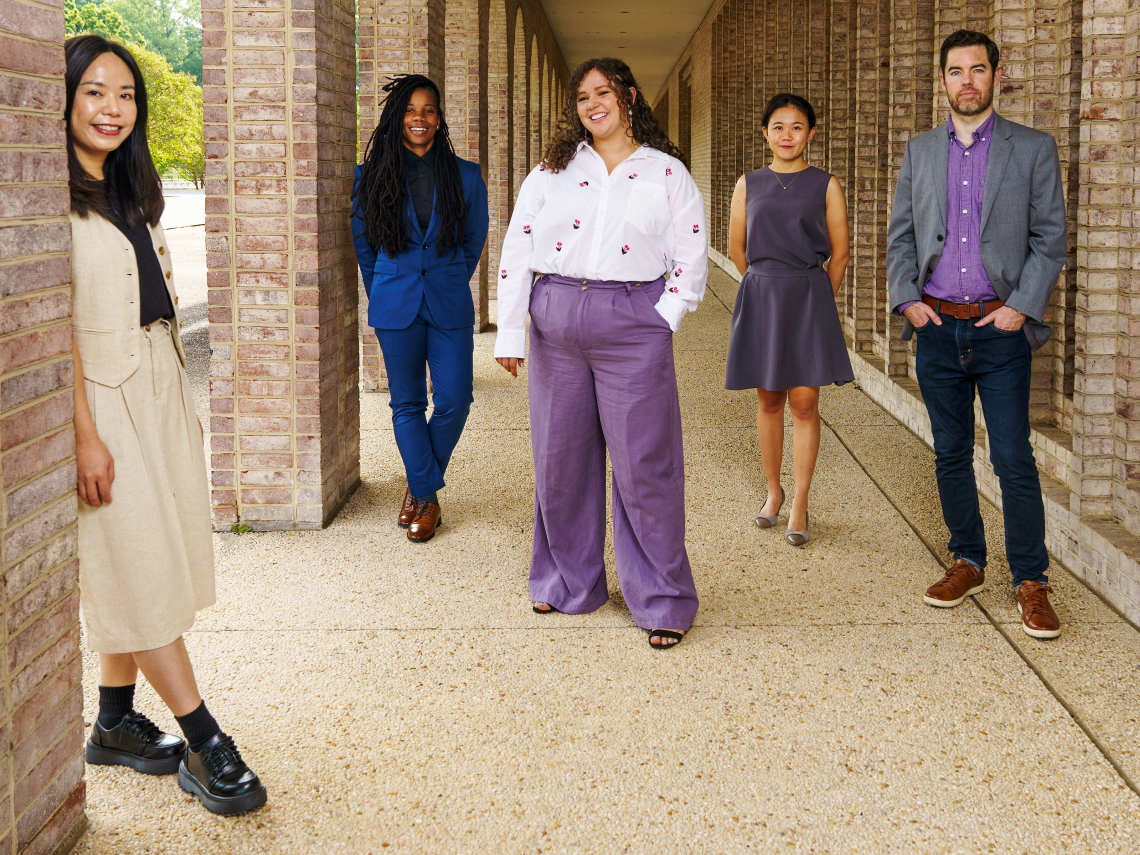
That text you just sent your mom. The report that’s due on Friday. The many DMs from friends still awaiting replies. Most of us employ writing every day as a means of communicating with others. But we may forget that it is also an act that can tell us a lot about ourselves.
Five new faculty members in Thompson Writing Program are helping Duke students, and occasionally their faculty colleagues, examine and advance their own relationships with writing.
“These new scholars bring intellectual inquiry that will encourage undergraduates to see how writing emerges from within one’s own unique lived experiences of the world,” notes Program Director Denise Comer, “as well as how writing can be a powerful force to shape perceptions, crystallize identity and connect with others.”
Xiao “Katy” Tan, Hannah Taylor, Ben Hojem, Sharieka Botex and Yan Li arrived at Duke this summer. Their hiring marks a second year of investment in rhetoric and composition scholarship by the writing program, yielding a growing community scholars who are introducing new ways of thinking and communicating to their students.
These new faculty members, most of whom are also newly-minted Ph.D.s, are creating courses that invite undergraduates to deeply consider and rethink their own relationship with writing, focusing on how writing is shaped by and impacts identity formation and our interactions with others.
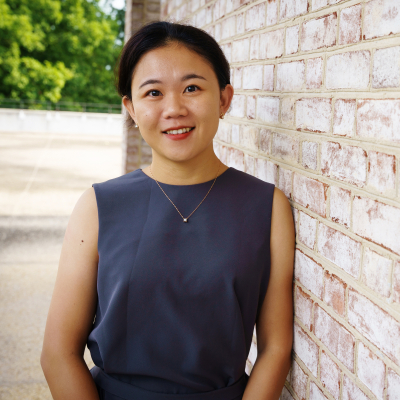
Katy Tan sometimes surprises students by revealing that long before she stood before them as a lecturer with a Ph.D. in Writing, Rhetorics and Literacies, she was training to become a scientist. How did that happen?
“It’s a story of finding your true self, as cliché as that sounds,” she says. “There are always different directions you can take. There are multiple possibilities.”
As an undergraduate in China, Tan majored in aeronautics and astronautics. It felt like the best choice at the time, she says.
“It was STEM, and STEM is supposed to be so promising, career-wise. I was pretty good at physics in high school. But it turns out, I didn’t really like it that much.”
Fortunately for Tan, physics was only one of her many academic strengths. She had also learned and chased increasing mastery of English in high school, taught herself German for fun and spent two years preparing to enter a master’s program in applied linguistics. She earned her Ph.D. from Arizona State University this year.
“With language learning, you can see the progress pretty fast,” Tan says. “There’s this immediate feedback that you get. I just wanted to learn the theories behind it, and to help other people learn languages.”
Her Writing 101 course this fall — Language, Power and Identity — takes a socio-linguistic perspective on writing. She asks students to investigate the intersections among those three terms by writing in different genres, from the argumentative essay to a narrative essay that ties to existing literature and, finally, producing a genre analysis.
“I’m trying to help students see that language is not so simple,” she says. “It’s always embedded in competing and conflicting ideologies, and it’s constantly evolving.”
Tan is also developing a new course about AI and writing that she hopes to offer in Spring 2024. She follows these evolutions closely to understand what trends might next challenge her students. “I want my research to always be relevant to the classroom practices.”
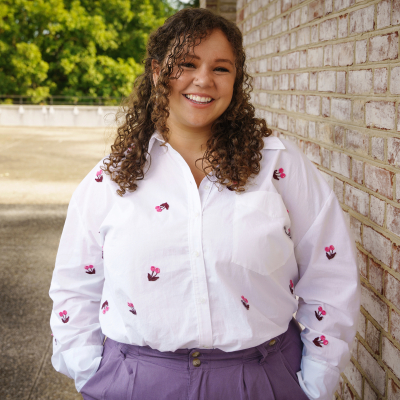
Periods. Menopause. Sterilization. IVF. Abortion. If those terms make you squirm, you might be a great candidate for Hannah Taylor’s courses on the rhetoric of health and medicine.
The new lecturer defended her Ph.D. at Clemson University mere weeks before arriving at Duke, and what led her to study “The Rhetoric of Menstruation” was directly related to personal experience. Taylor was diagnosed with endometriosis and polycystic ovary syndrome in graduate school. It was a painful, frustrating and isolating journey that — given her studies — she couldn’t help but view through the lens of language.
“There are all these biological processes that people go through that we talk about in shrouded ways all the time,” she says. “They are highly stigmatized and taboo, but they impact the way people lead their lives in really important ways.”
For her dissertation, Taylor examined books about puberty given to young people, period tracking apps that are commonly used today and historical documents about the development and evolution of menstrual products over time. She was excited to expand that research focus to all matters related to reproductive rights in her Writing 101 course this fall.
“It’s a good moment to gets students tapped in and engaged in these issues,” Taylor notes. “A lot of people, when they think about reproductive rights, think about abortion. But it’s also [about] who has the right to parent, can adopt or can have IVF. Who has the right to resources once you are a parent?”
That’s not to say that abortion doesn’t come up in her course. But Taylor has observed and adopted tactful methods for moving through and beyond tense moments.
“Writing can be a great tool when class gets heated — where there’s some disagreement happening in which talking about it is not productive,” she explains. “So, we take a beat, write about what you are thinking, and get to a point where you can vocalize that.
“At a university like Duke, you have students who are going to be the people creating policies and legislation, being doctors and shaping the language we use around these issues. If I can get them to think more mindfully about the impacts of language around people and bodies, then I will feel we’ve had a successful semester.”

As a college student, Ben Hojem once wrote three papers on a single passage from “A Portrait of the Artist as a Young Man” by James Joyce, wherein a young Stephen Dedalus talks about his views on aesthetic theory.
“That section of the book is not people’s favorite, because it’s not story, really,” Hojem recalls. “It’s a young pretentious writer talking about theory. But to me, that was fascinating. I was interested in writers who wrote about being writers.”
An MFA at Wichita State helped sharpen his interest and focus on what happens behind the writing of everything from novels to non-fiction essays.
“Sometimes creative writers don’t want to look under the hood,” Hojem says. “They don’t want to tinker too much with instinct or do too much investigation of their own process. They don’t want to go to therapy.”
He’s still intrigued by those ideas. One area of Hojem’s research explores how those who think of themselves as creative writers compare or contrast with those who don’t. He also asks what writing means to people’s identities, ranging from celebrated writers and scholars of color to the undergraduates bringing “versions of themselves” into his classroom who “may not feel immediately compatible with what they are asked to do.”
Hojem speaks eloquently about writing as a process of discovery of oneself and of the world: “We talk about invention in rhetoric and composition as a way of coming up with things that were nebulous,” he explains. “But by getting into it [via writing], you realize what you think.”
The new Duke lecturer is also the editor of FEN Blog, an online companion to the journal Composition Studies. When editing other scholars, he challenges them to hone their stylistic choices in ways that situate an academic topic in a blogging format.
In the classroom, he looks forward to being challenged by Duke students. “I expect to try things I haven’t done before, or even thought of yet,” he says.
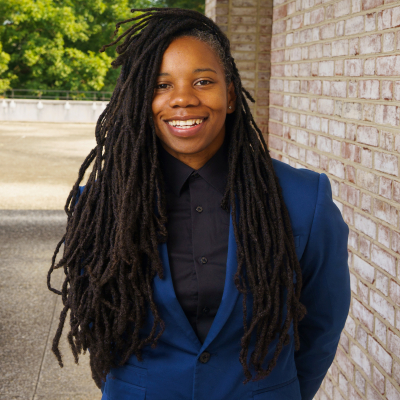
Sharieka Botex grew up in a house enriched by conversation. Sports, entertainment, culture, politics — they talked through it all together. Her parents and other family members were her first educators, she says, encouraging curiosity and influencing her communication style in ways that shape her scholarship and teaching to this day.
“Whether talking through tough or tense moments or moments of joy, speaking can be productive for you as a writer,” the new assistant professor of the practice says. “You’re thinking about ideas and changing them as you go.”
Those two loves — writing and dialogue — served her well as a journalist, a career she held prior to earning her master's degree at East Carolina University and her doctoral degree at Michigan State University. But even after that professional experience, Botex understood that she didn’t know everything about writing. In graduate school, she embraced opportunities to continue learning through deep explorations of existing scholarship as well as from professors, faculty and staff mentors, and from the students who she taught in writing classes or worked with in writing centers.
Botex was also aided by a clear sense of purpose: “I want to help people to recognize the power in their writing.”
“While I have a lot of goals as a scholar and teacher, I hope to always focus on motivating and inspiring people to be confident in their ability to use their writing to pursue their professional, academic and personal goals and aspirations,” she says.
In Botex’s class, “Literacies for our Lives,” students engage with African American rhetoric and composition scholarship to learn how individuals used their own literacy practices to achieve progress and prosperity for themselves, their communities and society, despite enduring anti-literacy laws and other injustices that denied Black people equitable academic and professional opportunities.
She hopes students will be inspired to use their own literacy practices for progress and prosperity — particularly at a time when she believes everyone can use some inspiration to make contributions that positively shape society and ensure that everyone has access to the professional and academic opportunities they are passionate about.
“In our country where there is a lot happening with discourse and the ways we engage in dialogue, our writing and communication can be used to make change,” she notes. “And we are in a moment where we are seeing young people do that.”
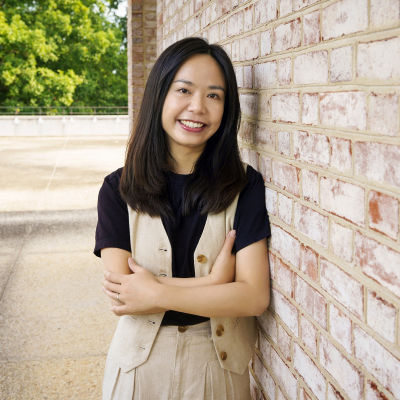
Moving from China to the U.S. challenged Yan Li to teach and communicate in an entirely new context. She has also come to see her undergraduates as “strangers in a strange land,” writing daily across disciplines from history to engineering.
Any one student is enrolled in multiple courses at the same time, Li notes, with each professor providing different prompts and expectations, often with minimal scaffolding to help students adapt from one context to the next. Li supports students by teaching them how to observe the writing habits and traditions practiced in any community.
That includes multilingual students, in whom she has a particular interest. The internationally born contingent of Duke students is part of what drew Li to Durham. It’s important to “acknowledge the cultural, linguistic and discourse resources,” already at their disposal, she says. All students come to writing with knowledge and strengths.
“What kind of writing do they do daily? Emails or lab reports or memos — even for their social media accounts, texting.” It’s all writing, Li stresses, as she encourages them to investigate their audience and goals.
She also thinks about how to support faculty. Her dissertation at Miami University included surveying more than 40 multilingual writing programs nationwide to see what institutions did to support learning — what she calls their “institutional dispositions.” So, when Li came to work at Duke as an assistant professor, it was a highly informed choice.
“I liked the way the first-year writing program is based on a ‘writing across the curriculum’ philosophy, so instructors can teach on themes and their expertise,” she says, “I want to help young scholars demystify the idea that writing is the perfect way of thinking produced by elite people in the attic. It is making disciplinary writing approachable.”
Li also wants to know what is happening in the black box of people’s brains when they are writing across disciplines or contexts — an area of research called writing transfer studies — which includes cognitive, emotional and social factors in how writers approach writing and the work they produce. She believes first-year writing is not some universal set of skills that can be directly applied. It takes the joint efforts of faculty across the disciplines to support students’ writing development over time. She found that at Duke.
“It’s always hard when people start writing something new in a new context. What happens when people struggle? When people fail in this new task of assigned writing? And how can our curriculum support that — particularly students who are in the minority of a population?”
“I need time one-on-one with all of my students,” she continues. “Here, I can meet my students every day. Building the kind of rapport with students so they trust me? This is the first, most important thing I do.”